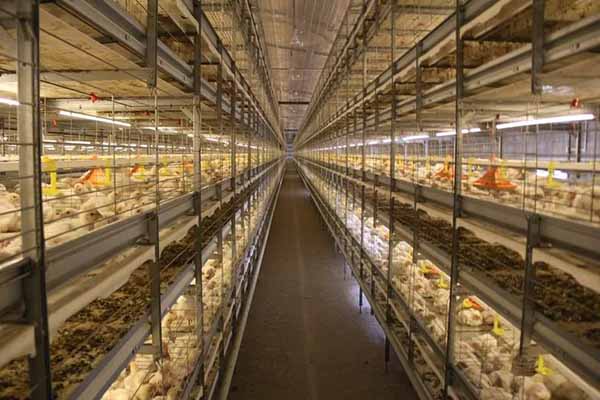Step-by-Step Chicken Farming Guide Nigeria
Are you looking to start a chicken farming business in Nigeria? Whether you’re a seasoned farmer or a beginner, this comprehensive guide will walk you through the essential steps to get your chicken farm up and running successfully. As a leading supplier of poultry equipment, Livi Machinery is here to provide you with the tools and knowledge you need to succeed.
Step 1: Market Research and Planning
Before diving into chicken farming, it’s crucial to conduct thorough market research. Understand the demand for chicken products in your area, and plan your farm size accordingly. Consider factors like local competition, consumer preferences, and economic conditions.
Step 2: Choosing the Right Breed
Selecting the right breed of chickens is vital for your farm’s success. In Nigeria, popular breeds include the local broiler, layer, and meat breeds. Each breed has its own characteristics, growth rate, and egg production capabilities. Choose a breed that aligns with your farming goals and market demand.
Step 3: Acquiring Chickens
Purchase your chickens from a reputable supplier. Ensure that the chicks are healthy, free from diseases, and of the desired breed. It’s advisable to buy chicks in batches to maintain a consistent age group and reduce the risk of disease transmission.
Step 4: Setting Up the Farm
Create a suitable environment for your chickens. This includes building sturdy coops, ensuring proper ventilation, and providing adequate space for the chickens to move around. Consider the following:
– Coop Design: Ensure the coop is well-ventilated, predator-proof, and has a clean, dry floor.
– Water and Feed: Install automatic waterers and feeders to maintain a constant supply of fresh water and feed.
– Heating: In colder regions, provide a heating system to keep the chickens comfortable.
Step 5: Feeding and Nutrition
A balanced diet is essential for healthy chickens. Provide a high-quality feed that meets their nutritional requirements. Adjust the diet as the chickens grow, ensuring they receive the right balance of protein, carbohydrates, vitamins, and minerals.
Step 6: Health Management
Regular health checks and vaccinations are crucial to prevent diseases. Implement a biosecurity program to minimize the risk of disease outbreaks. This includes:
– Regular Cleaning: Keep the coop and equipment clean to prevent the spread of disease.
– Vaccinations: Follow a vaccination schedule recommended by a veterinarian.
– Monitoring: Keep an eye on the chickens for signs of illness and seek veterinary advice promptly.
Step 7: Egg Collection and Meat Processing
Implement a system for collecting eggs regularly and processing meat efficiently. Ensure that the collection process is hygienic to maintain the quality of the products.
Step 8: Marketing and Sales
Develop a marketing strategy to sell your chicken products. Utilize local markets, online platforms, and partnerships with restaurants and grocery stores to reach a wider audience.
Step 9: Continuous Improvement
Stay informed about the latest trends and advancements in chicken farming. Regularly assess your farm’s performance and make adjustments as needed to improve efficiency and profitability.
Step 10: Partner with Livi Machinery
At Livi Machinery, we offer a wide range of high-quality poultry equipment to help you streamline your farming operations. From feeders and waterers to incubators and automation systems, we have everything you need to run a successful chicken farm.
Contact us today to learn more about our products and services. Let Livi Machinery be your partner in chicken farming success in Nigeria.

